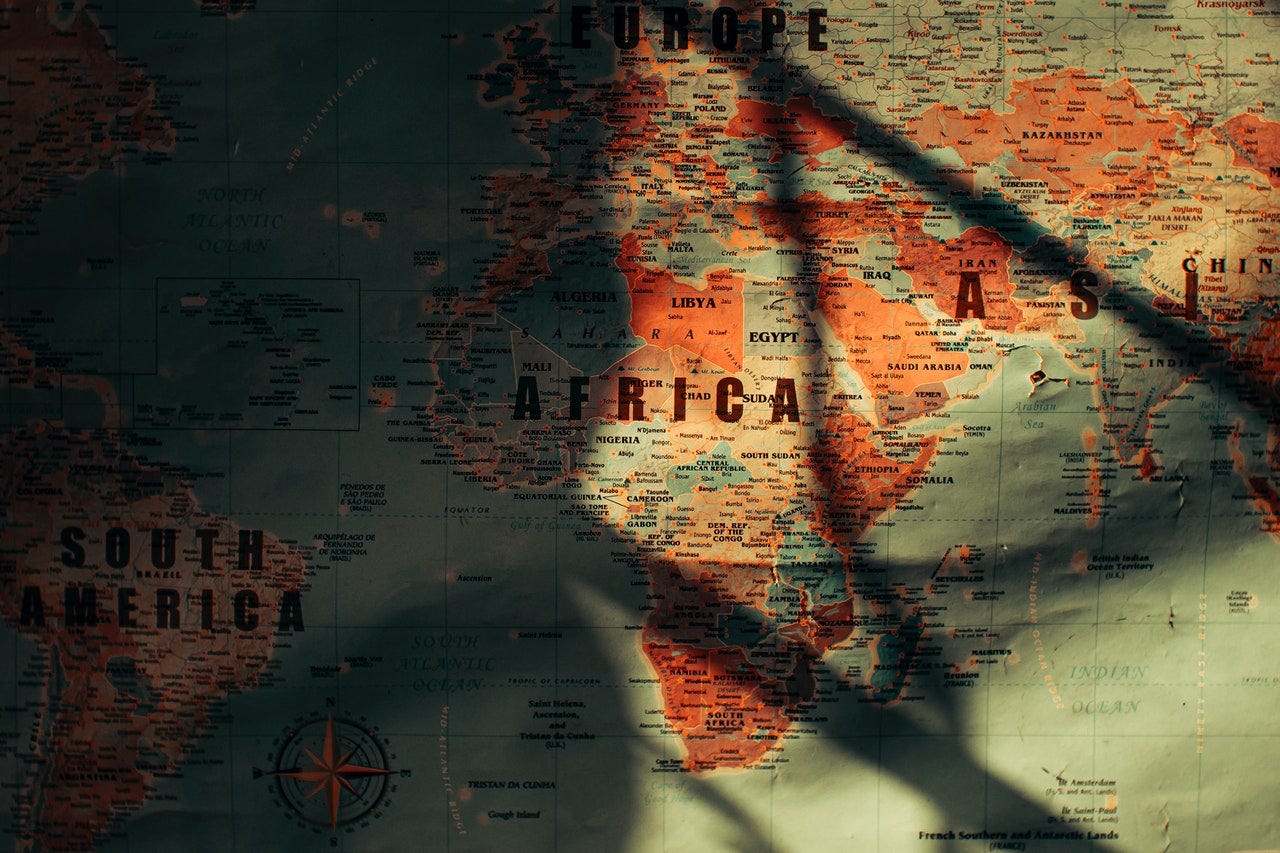The Deep File: Get Familiar with Africa's Many Conflicts, You'll See More of Them in 2022
It’s been a long time since Africa has received much priority in American foreign policy, but recent instability there coupled with growing competition with China is changing that.
November 5: Tables turn in Ethiopia
I’ve been reporting on the civil war in Ethiopia for a year now (just crossed the one year anniversary this week), and what started as sharp fighting last year seemed to settle down into something of a stalemate that no side could gain an advantage in.
That changed this week with a major breakthrough of government lines by Tigray rebels who are now charging towards the capital of Addis Ababa, and are consolidating a rebel coalition.
Prime Minister Abiy Ahmed declared a national emergency and made an appeal on social media for Ethiopians to fight to the bitter end (before Facebook suspended his account for inciting violence).
People are fleeing the advancing rebels and the UN is reporting mutual atrocities as the rebels seem on the cusp of pulling off a stunning turn of the tables.
I’ve been telling my students for the last couple of years that Africa is becoming an increasingly fluid and unstable continent, providing both opportunity and challenge for US diplomacy, but there’s been little response from the Biden team aside from the general talk of “please fight fair,” which is hardly encouraging.
Next door, in Sudan, despite the increasing international pressure on the Sudanese military to return civilian power, little is changing on the ground where protests have been met with bullets.
November 12: Escalations in the Horn
In Sudan, the military coup seems to be at an end with another interim government in place… but with the military still at the head of the table.
Fighting in Ethiopia continues with UN personnel being harassed by the Ethiopian government. While I reported last week that rebel alliances were forming and approaching the capital, the rebels themselves don’t seem to be interested in a complete overthrow of the Ahmed government.
November 19: Uneasy Africa
I’ve been covering the growing instability across Africa at various points throughout the year, and this week saw a continuation of that trend.
In Sudan, anti-government protests continued against the military takeover despite dozens being killed by security forces.
In Uganda, ISIS claimed responsibility for a bombing on Tuesday that killed several people.
In Ethiopia, the state of emergency continues as the government prepares its forces to push back the Tigray rebels who are threatening Ethiopia’s coastal access.
The spiraling problems in the Horn of Africa and surrounding neighborhood has American diplomats working overtime to try to mediate the Ethiopian crisis and calling in Israel to help mediate in Suan. An Ethiopian source tells me American mediation attempts are DOA given the belief that the Biden administration is tacitly backing the Tigray rebels and not acting in good faith.
Meanwhile, upcoming elections in Libya have rebel General Haftar mounting a bid for office against one of Moammar Gaddahfi’s sons, leading some to believe that such an electoral field is not going to end in any kind of peaceful outcome.
Get a lay of the land, here. Libya teeters on the brink of a less than stable power transition, Ethiopia has a civil war going on, and Sudan is in chaos. The country that shares borders with all three? Egypt. So, what’s Egypt doing? Working the phones, I’m sure, but also probably not entirely unhappy with things. Especially in Ethiopia, Egypt may perceive that fighting there may pause, or at least slow, the filling of the GERD dam on the Nile.
Since then…
Whatever precarious calm had settled in Ethiopia (border clashes with Sudan notwithstanding) in the last couple of weeks appears on the verge of ending as Prime Minister Abiy Ahmed has arrived at the front and called upon the TPLF rebels to surrender. The government is getting ready for a major offensive and seems to be feeling good about it… that and finishing construction of the GERD dam on the Nile.
Meanwhile, in Uganda, it appeared that another Chinese takeover of an infrastructure project with past due debts was in the offing before it was pulled back on the eve of a China-Africa summit. I guess an airport grab in Uganda wouldn’t have looked good for the beneficent image China is seeking to project.
With the unrest on the continent, it is certain that American diplomats will have to do more than talk to both compete with China and play the role of a concerned partner in the continents many troubled spots.
However, that “partner” image will be hard to maintain with the US handing down travel bans on African countries as the Omicron covid variant emerges (more on that in this week’s Weekly Brief).
It’s the holidays! So, if you happen to know someone who would enjoy the kind of calm, moderate overview of world events this newsletter provides, you can get them a gift subscription. Getting to read the news without spiking anxiety and blood pressure? That sounds like a gift that keeps on giving. :)



